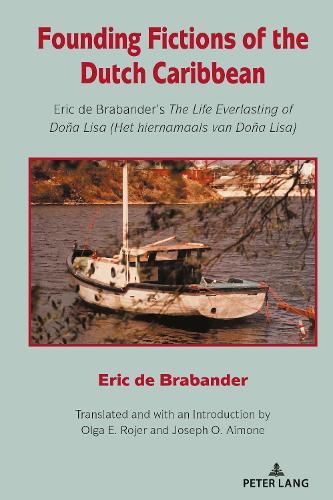Readings Newsletter
Become a Readings Member to make your shopping experience even easier.
Sign in or sign up for free!
You’re not far away from qualifying for FREE standard shipping within Australia
You’ve qualified for FREE standard shipping within Australia
The cart is loading…






This title is printed to order. This book may have been self-published. If so, we cannot guarantee the quality of the content. In the main most books will have gone through the editing process however some may not. We therefore suggest that you be aware of this before ordering this book. If in doubt check either the author or publisher’s details as we are unable to accept any returns unless they are faulty. Please contact us if you have any questions.
Originally published in Dutch as Het hiernamaals van Dona Lisa, The Life Everlasting of Dona Lisa is a hard-boiled, minimalist, postmodern novel about the perennial problems of postcolonialism. This is a tale of a failed attempt to escape Trinta di Mei, the postcolonial revolt of May 30, 1969, on the Dutch Caribbean island of Curacao. Edgar Raven, nicknamed Boyo, the central character, makes the fateful decision to abandon Curacao temporarily during these chaotic events. He leaves behind the burned-out husk of his home and dental practice with nothing more than some cash in his pocket and a few essentials, bringing with him his two closest friends, Kai, a fisherman, and JonJon, a retired marine engineer now paralyzed and condemned to a wheelchair. Together they travel to Venezuela for a "little vacation" and to buy a new fishing boat. This choice unleashes an avalanche of consequences, described in a narrative style that seems like a digressive festival of ideas and philosophies, intellectual duets and arias, stitched together with the clipped and brutal realism of the narration. But the plot leaves Boyo in the company of Sophoclean tragic figures, as close to oblivion as one can come without giving in to it entirely.
A major new contribution to Founding Fictions of the Dutch Caribbean, and a landmark translation, The Life Everlasting of Dona Lisa will appeal to readers interested in the history of the Caribbean, lovers of postmodernist literature, and those teaching courses on Caribbean and postcolonial literature.
$9.00 standard shipping within Australia
FREE standard shipping within Australia for orders over $100.00
Express & International shipping calculated at checkout
This title is printed to order. This book may have been self-published. If so, we cannot guarantee the quality of the content. In the main most books will have gone through the editing process however some may not. We therefore suggest that you be aware of this before ordering this book. If in doubt check either the author or publisher’s details as we are unable to accept any returns unless they are faulty. Please contact us if you have any questions.
Originally published in Dutch as Het hiernamaals van Dona Lisa, The Life Everlasting of Dona Lisa is a hard-boiled, minimalist, postmodern novel about the perennial problems of postcolonialism. This is a tale of a failed attempt to escape Trinta di Mei, the postcolonial revolt of May 30, 1969, on the Dutch Caribbean island of Curacao. Edgar Raven, nicknamed Boyo, the central character, makes the fateful decision to abandon Curacao temporarily during these chaotic events. He leaves behind the burned-out husk of his home and dental practice with nothing more than some cash in his pocket and a few essentials, bringing with him his two closest friends, Kai, a fisherman, and JonJon, a retired marine engineer now paralyzed and condemned to a wheelchair. Together they travel to Venezuela for a "little vacation" and to buy a new fishing boat. This choice unleashes an avalanche of consequences, described in a narrative style that seems like a digressive festival of ideas and philosophies, intellectual duets and arias, stitched together with the clipped and brutal realism of the narration. But the plot leaves Boyo in the company of Sophoclean tragic figures, as close to oblivion as one can come without giving in to it entirely.
A major new contribution to Founding Fictions of the Dutch Caribbean, and a landmark translation, The Life Everlasting of Dona Lisa will appeal to readers interested in the history of the Caribbean, lovers of postmodernist literature, and those teaching courses on Caribbean and postcolonial literature.